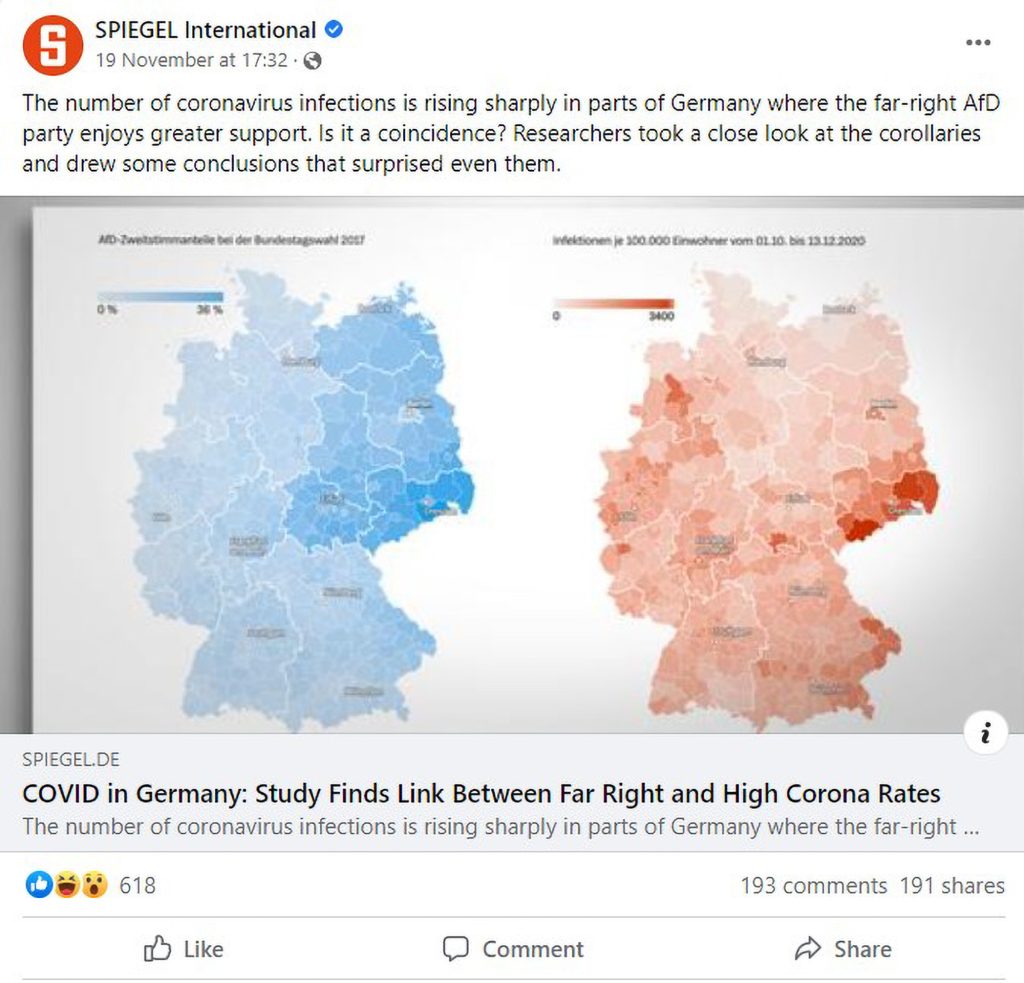A new study has found a correlation between high COVID-19 rates and areas where there is strong support for the far-right AfD party in Germany.
According to researchers from the Research Institute for Social Cohesion and an epidemiologist from the German Research Centre for Environmental Health, the more votes the far-right Alternative for Germany (AfD) party got in a given region in the 2017 elections, the more rapidly COVID-19 spread there.
Side-by-side maps show how the German states of Saxony and Thuringia both show the best election results for the AfD and at the same time the highest incidence of COVID-19 cases in data taken from last year’s infection statistics.

The two states were the only ones to return over 20 percent of votes for the AfD in the 2017 German federal election. They both also had a high incidence of coronavirus cases relative to other states.
The researchers who looked into the correlation did not explicitly conclude there was a causal link between the two. However, they said no other party’s election results correlated so systematically or strongly with COVID rates.
Sociologist Christopher Richter of the Jena Institute for Democracy and Civil Society said: “If the AfD gained one percentage point more in a district, then the incidence there was higher by an average of 2.2 percentage points in the phase of the first wave when numbers rose.”
Many, not least AfD politicians and supporters, have argued correlation does not equal causality, and have put forward other hypotheses to explain the link, such as foreign workers crossing the border from the nearby Czech Republic, where COVID cases were high, or the higher percentage of elderly people in the two states in comparison with the rest of Germany, given that the elderly were less likely to be asymptomatic and, therefore, more likely to be diagnosed with COVID-19.

In fact, the researchers themselves calculated correlations between high coronavirus rates and 48 different factors including social inequity, age structure and proximity to a border. However, they still concluded that “(t)he study results show a clear connection between the AfD share of second votes in the 2017 Bundestag election and the increases in corona infection numbers in the first and second pandemic wave of 2020.”
Richter, though keen to point out the precise correlation between COVID cases and AfD votes, refrained from pointing the finger of blame at the far-right party, stating: “(I)t is by no means clear from our results that every AfD voter is a critic of corona protections, and not every anti-vaxxer has an affinity for the AfD”.
Some AfD politicians have railed against what they see as a “corona dictatorship”, and the pollster Forsa found that half of unvaccinated voters opted for the AfD in the last federal elections in September.
Apart from its criticism of COVID measures, the AfD has been characterised by its opposition to immigration, Islam and the European Union.



